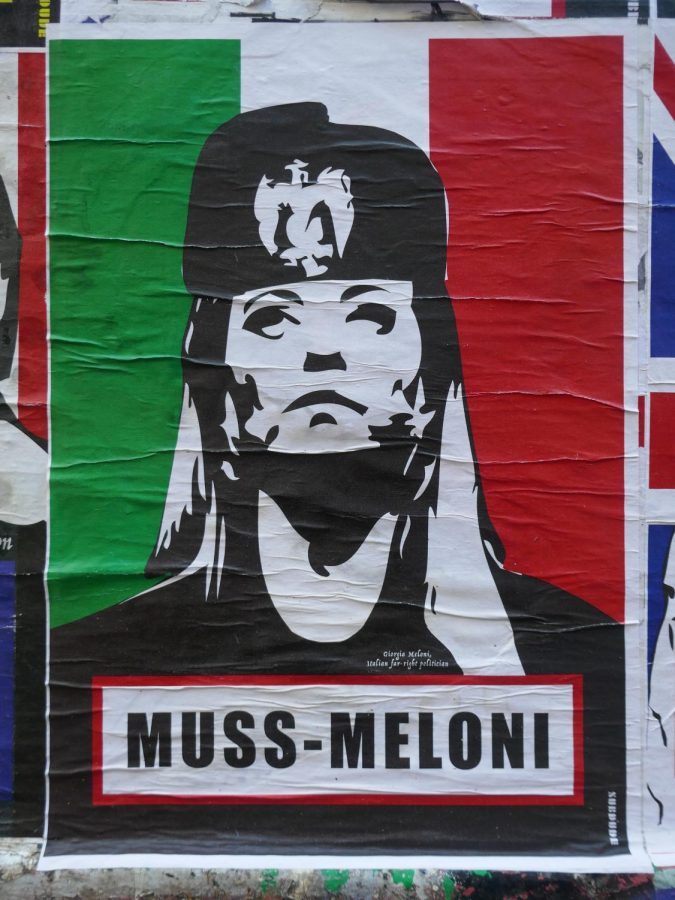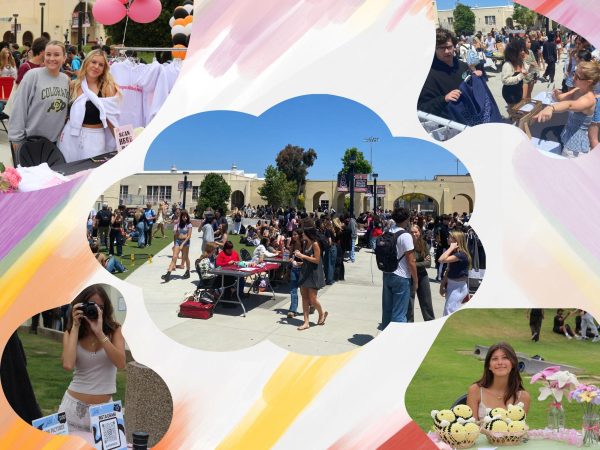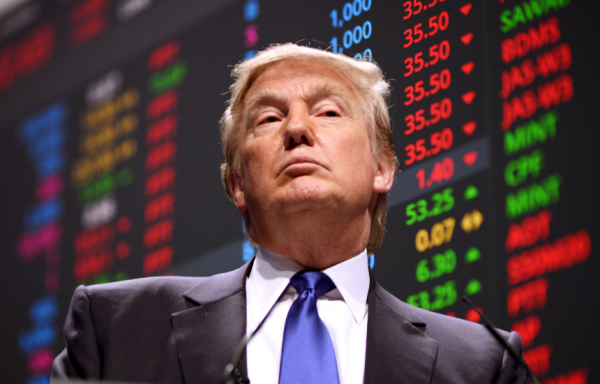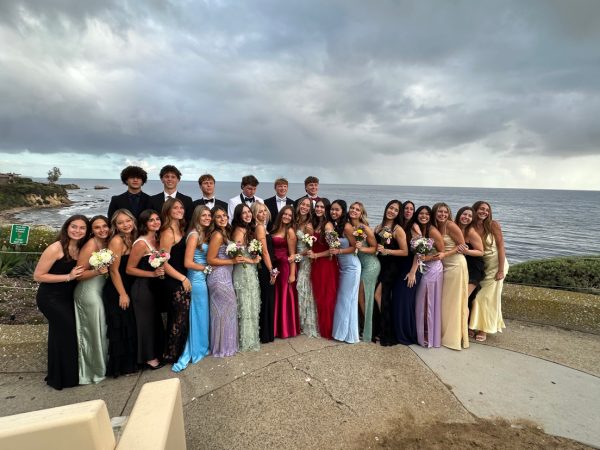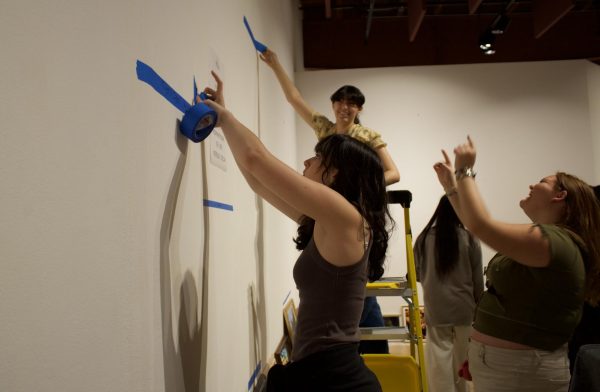Renewed Fascism
As summer is ending, radical changes have occurred in the governments of arguably the most important and influential countries in the world.
Currently, we are living in a political period full of changes due to the recent crises the world is experiencing involving economic, health, and social issues.
Europe has been greatly affected due to internal conflicts and the arrival of extreme right-wing political ideologies that are causing panic in the European parliament. This situation affects not only Europe but the rest of the world as well.
This last month, we witnessed extreme changes in some of the most influential governments of the world: Italy and Brazil.
On Sunday, September 25, 2022, Giorgia Meloni became the first female Prime Minister of Italy.
Giorgia Meloni, at 19 years old, became the leader of the movement “Student Action” of the National Alliance. In 1998, she was elected as councilor for the province of Rome. During the early 2000s, she was the first female president of “Youth Action.” In 2006 she reached her most important position as a member of the Chamber of Deputies with the “National Alliance” party and became its youngest vice-president. In 2012 she separated from this party and created the party “Fratelli d’Italia” (Brothers of Italy). After being present in various Christian events and movements against LGBTGIA+ communities, on September 25, 2022, she became Prime Minister of Italy in coalition with the parties “Forza Italia” and “Lega Nord” accumulating 43.8% of the votes.
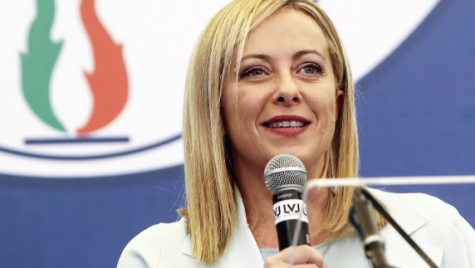
What does this election mean?
Since the march on Rome in 1922, Italy has been plunged into a fascist and conservative dictatorship under the command of Benito Mussolini. Of course, that was until Mussolini was shot in 1943,
Mussolini was the founder of the political party, “Italian Social Movement,” and years later, Giorgia Meloni would become president of the youth group Mussolini created. This Italian presidential election is monumental as it is the first time extreme-right politicians will govern since Mussolini’s monumental regime. Additionally, during these elections, the highest number of abstentions has been registered. Abstention includes boycotting and not using your vote, as the majority of Italian citizens think that the political parties do not deserve their vote.
Our modern-day world is living in a very complicated time, dealing with global pandemics, wars such as the Russia and Ukraine conflict or Armenia and Azerbaijan fighting, as well as the collapse of national economies, leading to chaos for many countries. People are looking for strong leaders who have simple solutions to complicated problems because they bring security and comfort. Italy will not be the first democratic country to return to right-wing and conservative ideologies. We will see it in Brazil and we have already witnessed it in European democracies such as Sweden and the United Kingdom.
In the European Union (EU), panic is rising most because of the ultra-right-wing parties are calling for withdrawal from the EU simply because many countries want excessive control. These events have amplified that this election is no longer just about extreme nationalism but also about protecting women’s rights, the LGBTQIA+ community, and religious freedom among the people.
Based on Italy’s past history many people did not expect a far-right party to be elected into government. Giulia Puonzo, a 17-year-old exchange student from Turin, Italy, studying in California, said the following when asked questions regarding the Italian election.
Why do you think the conservative party has won the election?
“Today Italy is experiencing an ideological crisis: Few people have interest in politics, high level of [abstention], and most importantly, there are no alternatives to the right party,” said Puonzo.
“The most important left party (PD), Meloni’s opposition, didn’t have any ideas, proposals, or programs. They have invested their time criticizing the right party and not showing alternatives to their proposal. In Italy, there are a lot of old people, the strong influence of the church combined with an old and closed mentality and ignorance strengthened the conservative party,” Puonzo adds.
What do young people think about this difficult scenario?
“I think that politics do not attract young people, most of the young people that voted chose the party that was more famous in social media and that was Meloni’s party,” said Puonzo.
What do you think caused this division in Italian society?
Puonzo says, “Italy has always been a state with a big difference between North and South, the crisis was exacerbated by COVID-19, and war just has increased this difference and division.”
What Happens Now?
Italy is not the only country with elections scheduled for 2022.
The Federative Republic of Brazil is also at a crucial point in the country’s political history, and this is the most critical election that Brazilians will face.
On October 2, Jair Bolsonaro, who is the current president, and Luiz Inácio Lula da Silva, who was president from 2003 to 2011, compete for the presidency of Brazil. Jair Bolsonaro is the candidate of the Liberal Party (PL), while Lula is the representative of the Workers’ Party (PT).
Bolsonaro obtained 43.20% and Lula obtained 48.43% of the votes. In the Brazilian electoral system, to win the presidency the candidates need a minimum of 50% of votes to receive the title, if they do not get the 50% a second round is held in which individuals vote again. On October 30, 2022, Brazilian citizens inside and outside the country will return to the polls to choose what party and who will govern the country for the next 4 years.
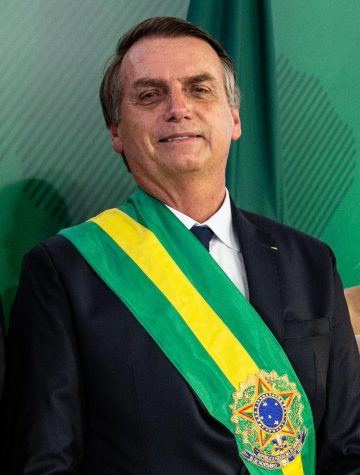
Jair Bolsonaro is a retired Brazilian army captain and the current president of Brazil. He is a representative of the Liberal Party (PL) and is considered an extreme ultra-right and conservative official. During his presidency aid and protection for the indigenous groups of the Brazilian Amazon has decreased. In addition, the rate of deforestation of the largest forest on the planet has increased immensely. During his mandate, citizens witnessed abuses to the left, including limited access to abortion and euthanasia, hatred towards the LGBTQIA+ collective, and his support for the military dictatorship that Brazil suffered from 1964 to 1985. Bolsonaro was elected as president on January 1, 2019, and may be reelected in the current elections, and his opponent Lula da Silva is the competitor.
Lula da Silva, metalworker, trade unionist, and the 35th president of Brazil decides to run again for the presidency of the Republic 11 years after his last mandate. He is the representative of the Brazilian Workers’ Party; Silva is
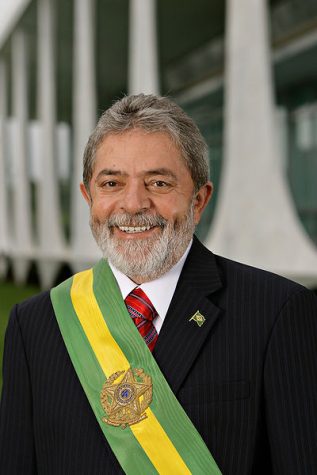
both the founder and the honorary president of it. His first term as president in Brazil was from 2003 to 2006 and then he was re-elected to the legislature from 2006 to 2011. He was a metalworker and trade unionist and was one of the main opponents of the military dictatorship that Brazil lived in from 1964 to 1985 and was also one of the main organizers of strikes and protests during the dictatorship. During Silva’s regime, Brazil experienced one of its most prosperous periods, thanks to Lula’s governmental programs, 30 million Brazilians were lifted out of poverty, Brazil tripled its GDP per capita, and led debates against climate change.
In 2016 Silva was involved in a monetary funds corruption scandal, and after being arrested he was sentenced to prison by the Supreme Federal Court of Brazil, he served 580 days in prison. In 2021, the Supreme Federal Court of Brazil overturned the accusations against Lula as they were declared unconstitutional and that Lula’s rights had not been respected, he was released.
Similar to Italy, Brazilian society has become more divided and polarized, since the COVID-19 pandemic. Concerns have risen regarding the increase in violence and the sale and use of weapons in Brazil have expanded. One has the ability to obtain a weapon and use it as self-defense, and sales have thus skyrocketed in states like Sao Paulo. Accordingly, the use of these weapons is causing increasing amounts of violence in the nation.
Edson Neto, a Brazilian exchange student from Rio de Janeiro has answered the following questions about the Brazilian elections and the current situation in the country.
Why is Brazilian society polarized?
“The newspapers, national news, and above all the social networks are the main causes of the division that is being created in Brazilian society. Each one spreads lies and exaggerations about his opponent and there is no will to cooperate. People want to fight fascists vs socialism” said Neto.
How do you feel about gun accessibility and purchasing weapons?
“The process of getting guns is not easy, it can take even two years to get one, after waiting you have to pass a psychological test to make sure the people getting them won’t hurt anybody else. It is not illegal to get one, it is just very hard to access one” repeated Neto.
Who do you think is the best option for the Brazilian presidency?
“[I believe] Bolsonaro is the best option for the presidency, taking into account Lula’s past we don’t want more corruption in our government, after everything that we’ve experienced this past few years we should have someone that focuses on the economic aspect rather than a social one,” says Neto.
Overall
Consequently, regardless of our personal ideologies and political thinking, it is clear that we are all going to live through these changes and crises together. As a society, we each have to do our part to ensure that the times ahead are as fair for all, so people can live happily.
Your donation will support the student journalists of Huntington Beach High School. Your contribution will allow us to cover our annual website hosting costs.
Thank you for supporting our program!


